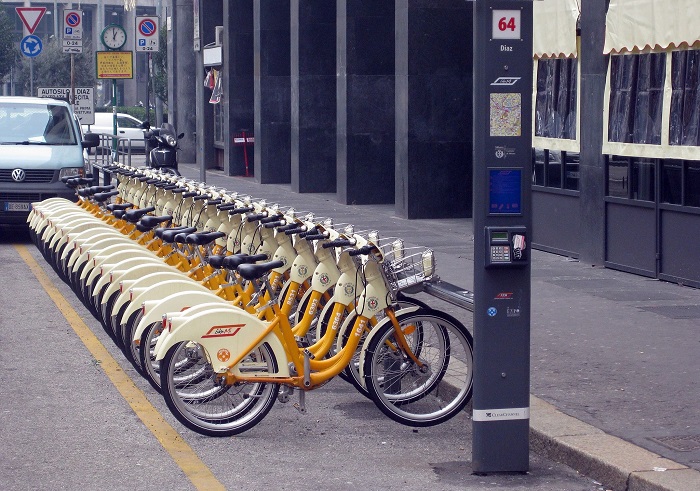Milan, Italy the latest European city to explore the idea of paying people to commute by bike
The idea follows the example of other communities in the Italy, the UK, Belgium, France and the Netherlands who have already tried it out.


Late last year, we told you about a small town in Italy, Massarosa, that was embarking on a somewhat unconventional pilot project to get people commuting on their bikes: by paying them to do so. As 2016 picks up momentum, the idea seems to be doing the same in other Italian municipalities.
Now Milan, the second most populous city in the country, wants to get in on the idea.
In December 2015, Milan was beset by skyrocketing, unhealthy pollution levels, a crisis that prompted city officials to briefly ban cars from the downtown core. Trying other ways to alleviate the problem, they also turned to the idea of offering discounted transit fares as an incentive. Paying bike commuters to ride is the next step in trying to make the city healthier.
As Milan officials move forward with the notion, they do so following the example of places like the UK, Belgium and the Netherlands, all of which have explored it in one way or another. In 2014, France was also gave it a test.
“We want to focus the public opinion on the fact that moving by bike is much healthier for them and for the city,” said Pierfranceso Maran, Milan’s councillor tasked with mobility issues, as reported by fastcoexist.com. Addressing the precedent set by other European countries, he added, “We are panning to do something similar, to give direct money to those who go to work by bike, or to give them some other sustainable-mobility incentive.”
There’s also an economic argument to made by offering cash in exchange for the leg power of the masses, Maran told reporters.
“If we look at mobility all together, for example, even half of the cost of public transport is contributed by national funds,” he said. “So we will give a little money as an incentive for citizens to know that cycling is healthier than cars, and can be a good alternative in a flat city like Milan.” Such awareness, though, is already spreading throughout the city, he said. In the last few years, Milan has added 50% more bike lanes, doubled the availability of bike-sharing, and in the downtown area, a car-free-zone is slowly getting bigger.
Those changes and the introduction of such a scheme as paying people to bike, Maran explained, is all about evolving the way Milan’s citizens think about transportation and sustainability.
